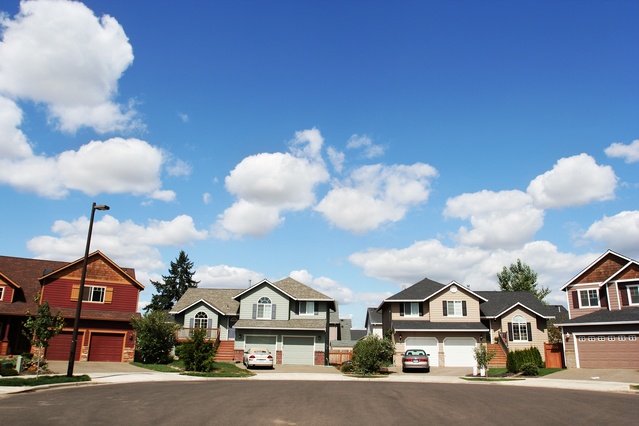“Location, location, location” wouldn’t be the catchphrase of the real estate industry if it weren’t true. It happens to be right: You can change a home, but you cannot change its location. Here’s why location matters when it comes to buying a home, and here’s how to scout out the best neighborhood in which to make your purchase.
©iStockphoto/kevinruss
Why Your Town or City Matters
As you evaluate a good location in which to buy a home, you can start by looking at the community, town or city in which a home is located. A town with a viable economy and a mixture of both residential and commercial districts provides its residents with job opportunities as well as the revenue needed to maintain roads and city services. Well-maintained towns and cities invoke a sense of community pride, thus reinforcing the value of homes in the area.
Why Your Local Neighborhood Matters
“Local neighborhood” refers more narrowly to a particular residential area and its surrounding necessities such as grocery stores or supermarkets, gas stations, hospitals, public transportation and so forth. Homebuyers should look for quality and convenience.
Even if a homebuyer doesn’t have school-age children, buying a home in a good school district is another important consideration. A recent survey of home prices in zip codes with good schools revealed appreciation in home values while areas with less reputable schools had declines in the prices of homes.
How to Scout a Good Location
A “good” location can be subjective, varying in meaning from person to person. Objectivity, however, is needed to make a good investment decision.
That’s where Neighborhood Scout comes in. This website is a recognized resource for nationwide crime data, school ratings, home values and appreciation, as well as other detailed information. If you love the neighborhood you currently live in and are moving out of town or out of state, Neighborhood Scout can tell you where to start your search for a compatible area where you plan to move.
Other things to keep in mind include:
-
- The renter-owner balance. If you’ve decided to buy a home in a given locale, you’re likely planning to stay awhile and would want a neighborhood with stability. An area saturated with rental property may mean that there is more neighbor turnover and a more transient population.
- “Walkability” is a real estate buzzword used with homebuyers who like the option of carrying out their day-to-day routines on foot or by bicycle. To see the potential walkability of a home, look at walkscore.com.
- A location that will work for years to come. Will a home’s location suit your needs five years down the road?
- A “home improvement-motivated” neighborhood. Take notice of other homes in the neighborhood where you’re thinking of buying. What is the upkeep like? Neighbors who take care of their homes are good for your own home value.
For more information about finding and buying your first home, download our free Mortgage 101 handbook.
